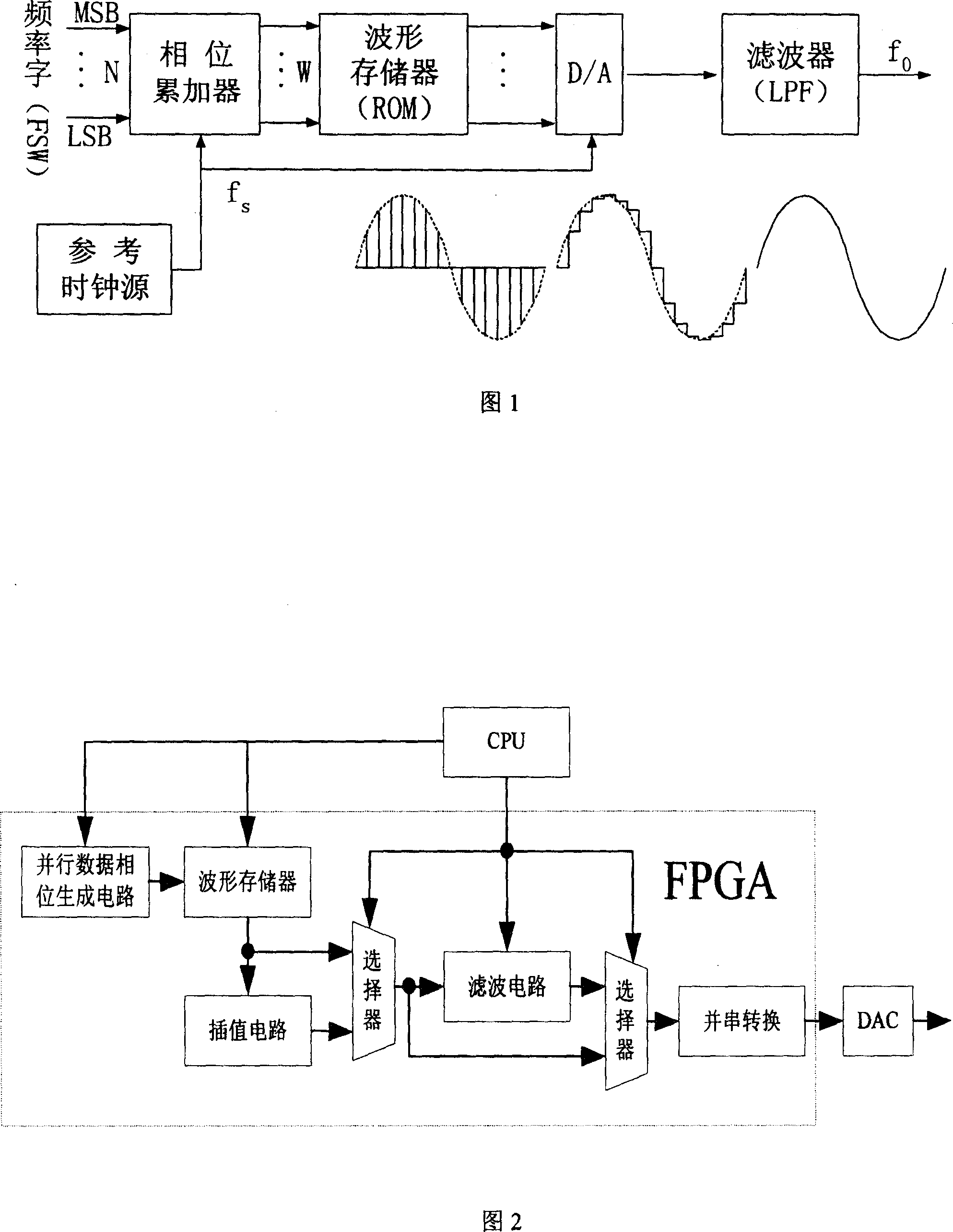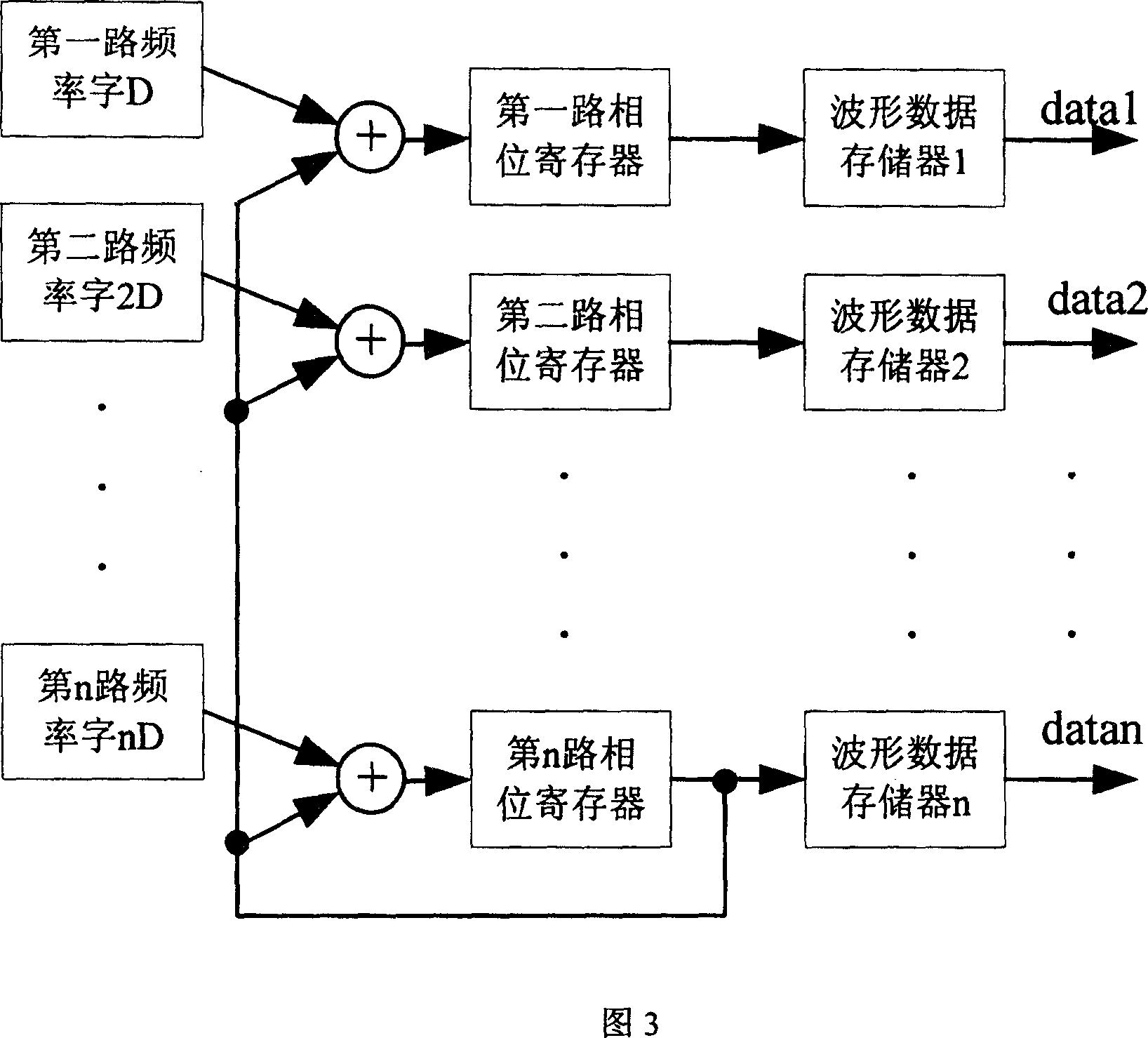High speed arbitrary waveform generator based on FPGA
An arbitrary waveform and generator technology, applied in the field of high-speed arbitrary waveform generators, can solve the problems that the working frequency of digital circuits can only reach a few hundred MHz, and the working frequency of data phase generating circuits and waveform memory cannot reach the working frequency of DAC.
- Summary
- Abstract
- Description
- Claims
- Application Information
AI Technical Summary
Problems solved by technology
Method used
Image
Examples
Embodiment Construction
[0027] The present invention is not limited to the structure and implementation details described or illustrated below, and the present invention can also have other specific embodiments.
[0028] Fig. 2 has provided the structural block diagram of the present invention, including CPU, FPGA and DAC etc. Among them CPU can be AT91RM9200 of ATMEL company or other. The FPGA can be the FPGA of the stratixII series of altera company, or the FPGA of xilinx company. The following uses the EP2S30 of altera company as an example. The DAC in Figure 2 can be a high-speed DAC from Maxim, or a DAC from AD, such as AD9736.
[0029] The CPU in Figure 2 is mainly used to configure the frequency word in the FPGA, the data in the waveform memory and the parameters of the digital filter circuit. By modifying the frequency word register in FPGA, the system can obtain the output of any frequency, and by modifying the data in the waveform memory, the system can obtain the output of arbitrary wave...
PUM
 Login to View More
Login to View More Abstract
Description
Claims
Application Information
 Login to View More
Login to View More - R&D
- Intellectual Property
- Life Sciences
- Materials
- Tech Scout
- Unparalleled Data Quality
- Higher Quality Content
- 60% Fewer Hallucinations
Browse by: Latest US Patents, China's latest patents, Technical Efficacy Thesaurus, Application Domain, Technology Topic, Popular Technical Reports.
© 2025 PatSnap. All rights reserved.Legal|Privacy policy|Modern Slavery Act Transparency Statement|Sitemap|About US| Contact US: help@patsnap.com



